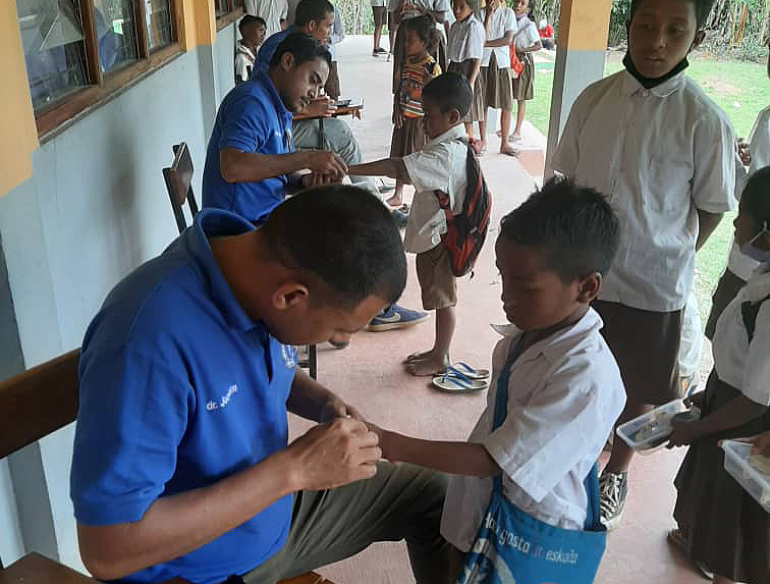Public health interventions are organised efforts to improve the health of populations or communities. Our public health research focuses on designing, examining, implementing and evaluating strategies to control infectious diseases and improve health. We are national and regional leaders in multidisciplinary and highly collaborative public health interventions that inform health policies and guidelines.
Our work in this area covers a range of interventions and infections. We led Australia’s, and one of the world’s, largest community implementation trial for the HIV prevention medication, PrEP (EPIC-NSW), demonstrating its efficacy at preventing HIV transmission, as well as its uptake by gay and bisexual men at risk of HIV.
Our researchers have also played a leading role in improving cervical cancer screening in Papua New Guinea. We are also leading a number of community-based programs for the prevention and control of neglected tropical diseases including scabies and soil-transmitted helminths via mass drug administration in at-risk communities in the Asia-Pacific region. This intervention involves delivering curative medications for particular infections to the whole community and is especially effective in resource-limited settings, where access to testing clinics can be a challenge. These medications have minimal other side effects, meaning that an entire community can be safely treated.
A growing area of public health research for the Kirby Institute is the implementation and evaluation of point-of-care diagnostics in communities at risk of infectious diseases. In remote Aboriginal and Torres Strait Island communities, this technology is being rolled out, in partnership with community-controlled health organisations and community leaders, to rapidly test for STIs and COVID-19. We are also leading a program that is delivering point-of-care testing for hepatitis C for prisoners and people who inject drugs. This technology delivers rapid results, enabling treatment to commence immediately if needed.
Programs working in this area:
- Global Health Program
- Viral Hepatitis Clinical Research Program
- HIV Epidemiology and Prevention Program
- Surveillance and Evaluation Research Program
- Aboriginal and Torres Strait Islander Health Program
- Viral Hepatitis Epidemiology and Prevention Program
